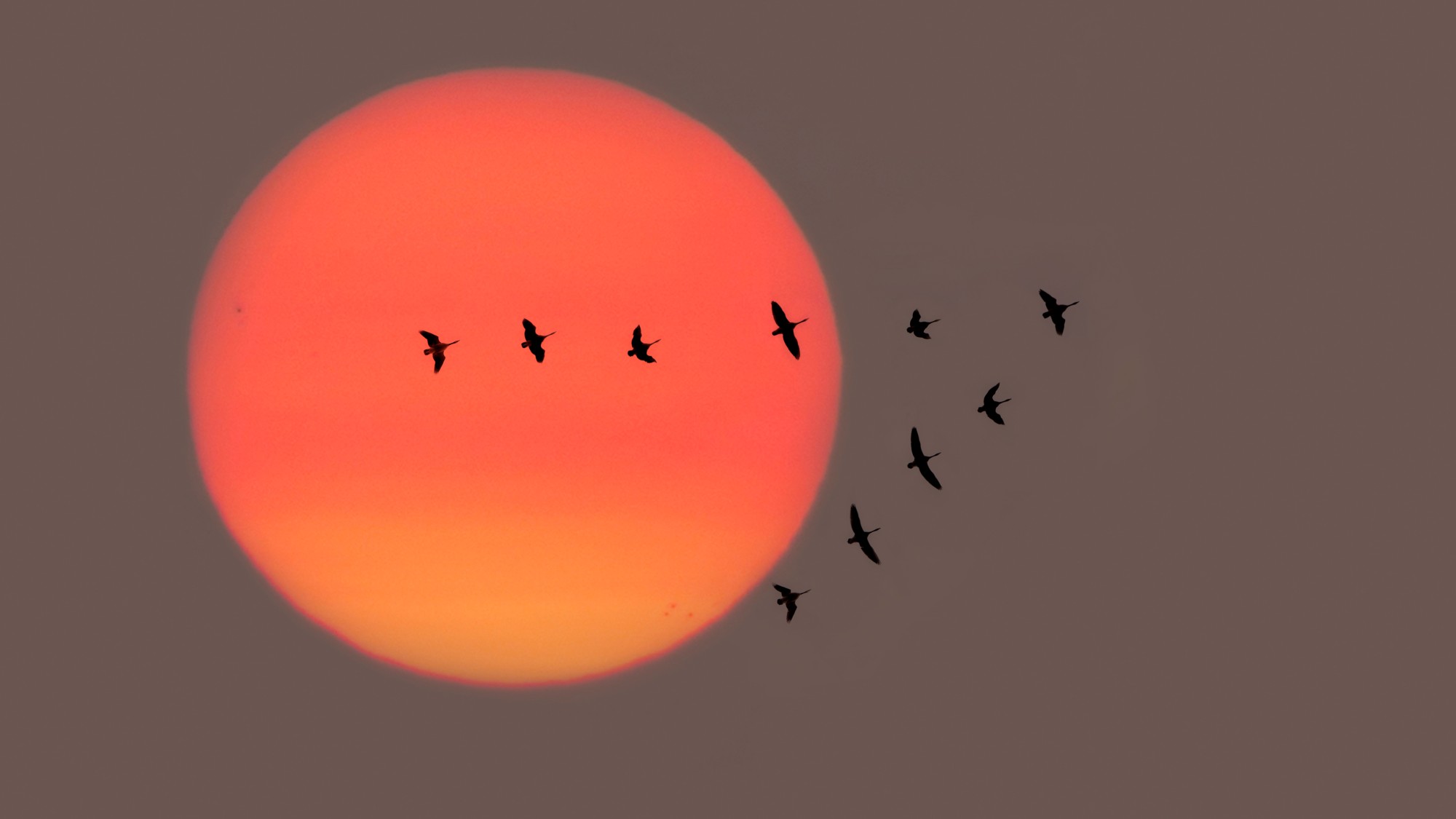The looming extinction of migratory animals
Some species are migrating straight out of existence


A free daily email with the biggest news stories of the day – and the best features from TheWeek.com
You are now subscribed
Your newsletter sign-up was successful
As humans continue to destroy the habitats of migratory animals, their numbers continue to decrease. Many of these species play important ecological roles, and certain ecosystems will be altered dramatically as a result. In order to protect migratory species, nations will have to come together and take conservation action — after all, animals don't adhere to any political boundaries.
Dropping numbers
Many animals must travel great distances across land, air and sea to meet their ecological needs. This phenomenon is called migration, defined as the "seasonal movement of animals from one habitat to another in search of food, better conditions, or reproductive needs," said National Geographic. Approximately 44% of the world's migratory species are declining in population, a new United Nations report said, and of 1,189 monitored species, over one in five are being threatened with extinction.
Migratory species "face enormous challenges and threats along the way, as well [as] at their destinations where they breed or feed," the report said. "When species cross national borders, their survival depends on the efforts of all countries in which they are found."
The Week
Escape your echo chamber. Get the facts behind the news, plus analysis from multiple perspectives.

Sign up for The Week's Free Newsletters
From our morning news briefing to a weekly Good News Newsletter, get the best of The Week delivered directly to your inbox.
From our morning news briefing to a weekly Good News Newsletter, get the best of The Week delivered directly to your inbox.
The threats they face
Migrating species are being threatened by habitat loss, illegal hunting and fishing, pollution, and climate change. "Migration is essential for some species. If you cut the migration, you're going to kill the species," Stuart Pimm, an ecologist at Duke University, said to The Associated Press. The report found that overexploitation was the biggest threat to migratory species, which includes "intentional removal, such as through hunting and fishing, as well as the incidental capture of non-target species." For marine animals, "bycatch of non-target species in fisheries is a leading cause of mortality."
Climate change has also played a big role in the decline of migratory species. Changing weather patterns and warming temperatures are causing some species to migrate further or earlier than usual, which may necessitate travel at unsafe times or into unsafe regions. "These animals are, first and foremost, part of the ecosystems where they're found," Amy Fraenkel, executive secretary of the Convention on the Conservation of Migratory Species of Wild Animals (CMS), said to CNN. "And we have a lot of evidence showing that if you remove these species, if they decline, it will have impacts on the ecosystems where they're found, and not in a positive way."
Taking global action
"One country alone cannot save any of these species," Susan Lieberman, vice president of international policy at the Wildlife Conservation Society, said to The Associated Press. To put it another way: Animals are non-partisan. "Migratory species have a special role in nature, as they don't recognize political boundaries," Anurag Agrawal, professor of environmental studies at Cornell University, said to CNN. This makes it all the more imperative that nations share the conservation burden.
Per the report, experts recommend that nations make commitments to "restore and establish well-connected networks of protected areas and other effective area-based conservation measures," make attempts to "halt human-induced extinctions and to ensure that any taking of wild species is sustainable, safe and legal," and promise to "address climate change and pollution." Ultimately, it is clear that ensuring the survival of migratory species is a collective responsibility.
A free daily email with the biggest news stories of the day – and the best features from TheWeek.com
Devika Rao has worked as a staff writer at The Week since 2022, covering science, the environment, climate and business. She previously worked as a policy associate for a nonprofit organization advocating for environmental action from a business perspective.
